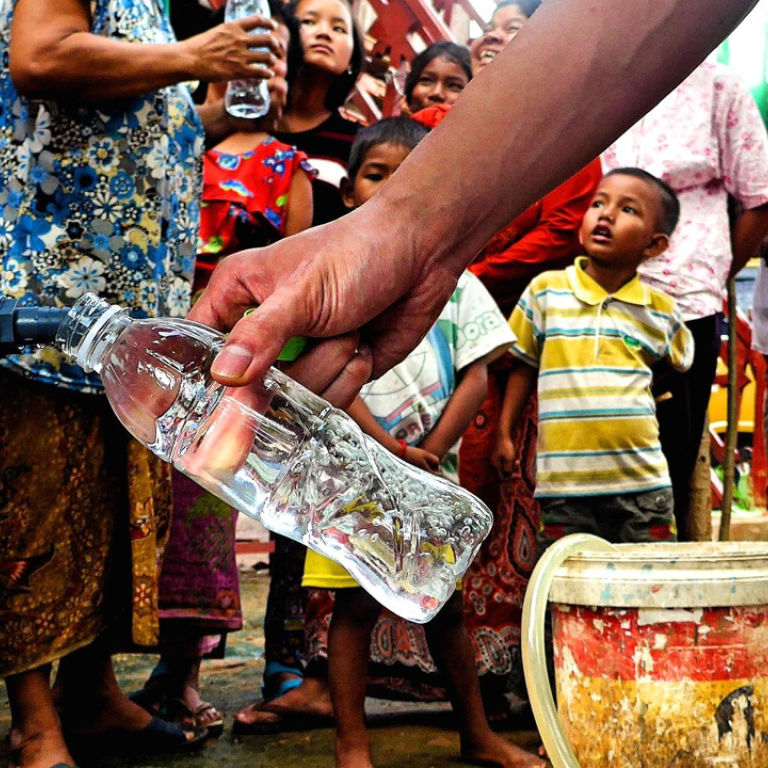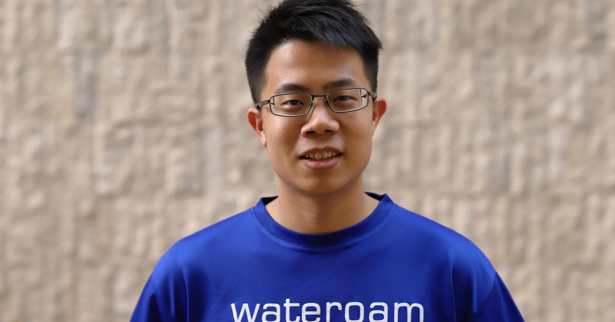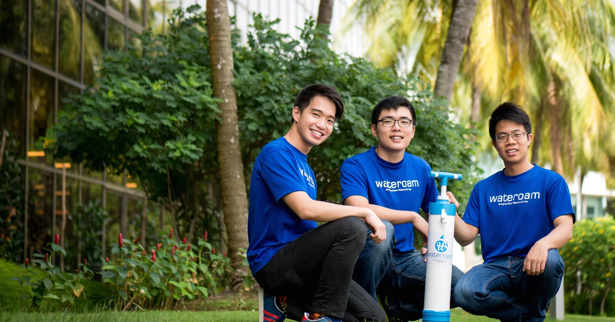
How burnout drove an entrepreneur to help 30,000 people across Southeast Asia
David Pong left behind estate planning and financial advice jobs, as well as a food start-up, to bringclean drinking water to remote and disaster areas
By Karen Gilchrist
David Pong was travelling in Australia when a bout of exhaustion stopped him in his tracks and prompted him to reconsider his direction in life.
He was just 23 at the time, but juggling two jobs and a start-up alongside his business degree studies had left him in need of a change.
“I was always thinking about my greater purpose, but the turning point came when I was feeling really burnt out,” Pong told CNBC Make It , recalling how he’d succumbed to allergies on the road from Sydney to Melbourne in 2013.
Returning home to Singapore, he decided to make a break for it; giving up his estate planning and financial advice jobs, and leaving behind his food start-up, to find a project that would allow him to give back to society.
Five years on, he makes up one-third of WateRoam, the company behind a portable water filtration system that has gained United Nations recognition for providing clean drinking water to more than 30,000 people in remote villages and disaster areas across Southeast Asia .

In search of purpose
“I wanted to know that whatever happens I’ve still somehow contributed,” Pong, now 29, said of his search for a new project.
Before long, he came across HydroPreneur, an initiative set up by the Singapore government to improve global access to clean drinking water and find solutions to international water shortages . That’s an issue that has long been close to the city-state’s heart given its historic reliance on water from bordering Malaysia .
There, he met Vincent Loka and Lim Chong Tee, both environmental engineering students, and together they came up with the design for a portable filtration system.
It ultimately won first place against 17 other HydroPreneur projects, “but that was just the start,” Lim told CNBC. “We wanted to see how we could really help.”
Back-breaking work
The trio decided to put their product to the test, pooling their savings — around 10,000 Singapore dollars (about US$7,600) — and visiting two small towns near Phnom Penh, Cambodia and Bintan, Indonesia .
On the road, however, the team came up against a major flaw: At 40 kilogrammes, the “portable” prototype was far too clunky, leaving one team member in need of slipped disk surgery after carrying the pack.

So they returned to the drawing board, trialling 10 iterations before eventually coming up with the final product in 2015: a 3.5 kilogram pump that can be attached to a central water source to provide clean water to a village of 100 people for up to two years.
“There are other water filtration companies out there, but ours is the fastest and the lightest,” said Pong.
“A lot of other solutions are designed for industrial use. Ours is designed for smaller locations and disaster relief.”
The pump retails at US$399, meaning it costs communities around $2 per head per year.
Winning support
It’s that lightweight design that has set WateRoam apart from other water filtration solutions and helped it win favour with local communities, NGOs and corporate backers, according to WateRoam.
In 2016, the company was awarded a 100,000 Singapore dollars (about US$75,900) social entrepreneurship grant from DBS, Southeast Asia’s largest bank. WateRoam’s work was recognised by the United Nations when co-founder Vincent Loka was named as a Young Leader for Sustainable Development Goals.
That same year, WateRoam broke even and each of the three founders and their four staff members have been able to take a salary as revenues have grown.
“Back then we were really bootstrapping, but with the added resources we have been able to do so much more,” said Lim.
As of April 2018, WateRoam has brought clean water to more than 30,000 people in 14 countries across Southeast Asia . Within the next five years, the team hopes to help 30 million people in the region.
Pong said that will go some way to helping the 663 million people globally who lack access to uncontaminated water.
“I really believe it’s our role as people who are privileged to help those without,” said Pong.
“Even when we’re young, it’s important to dedicate the prime of our career to helping out.”
Like this story? Like CNBC Make It on Facebook!

